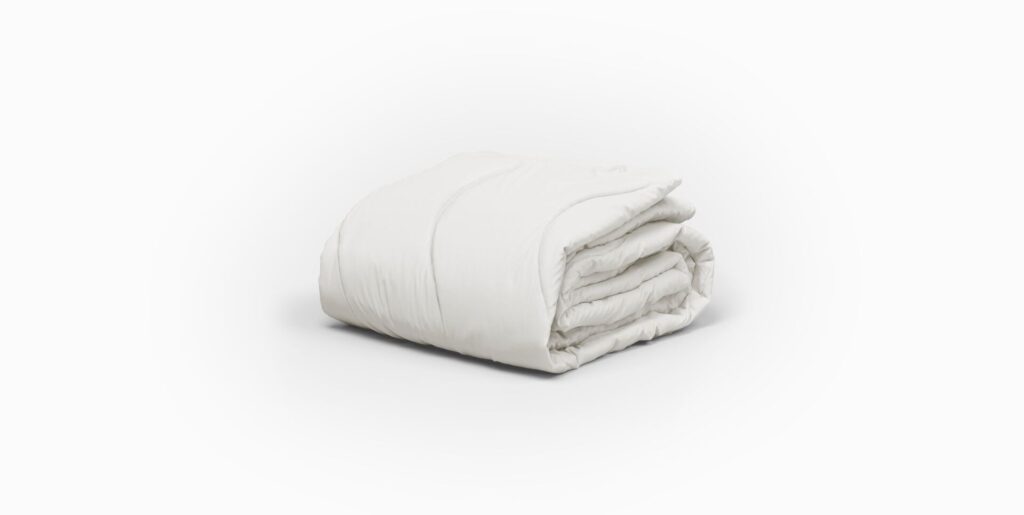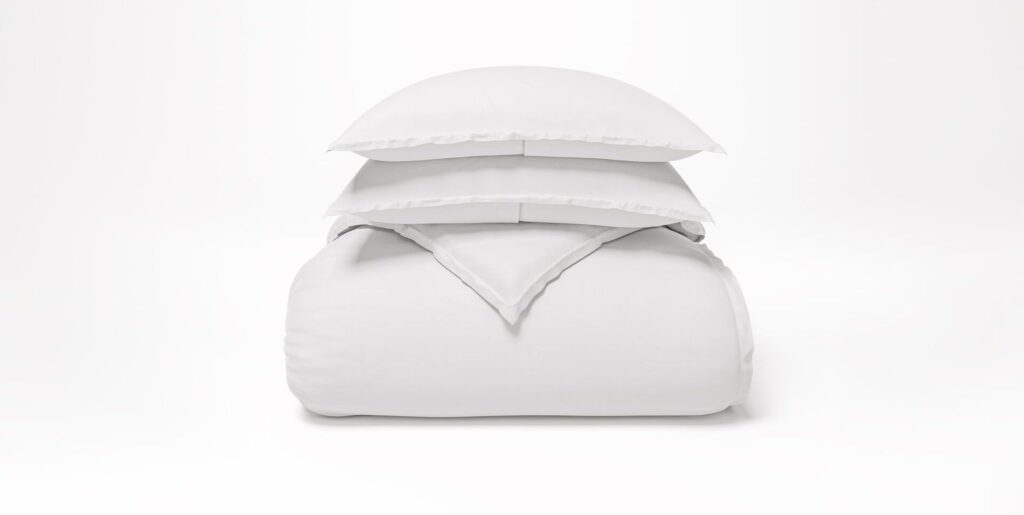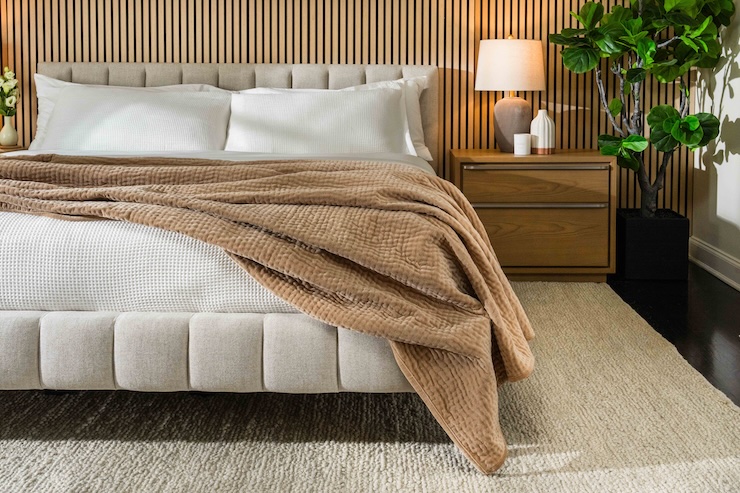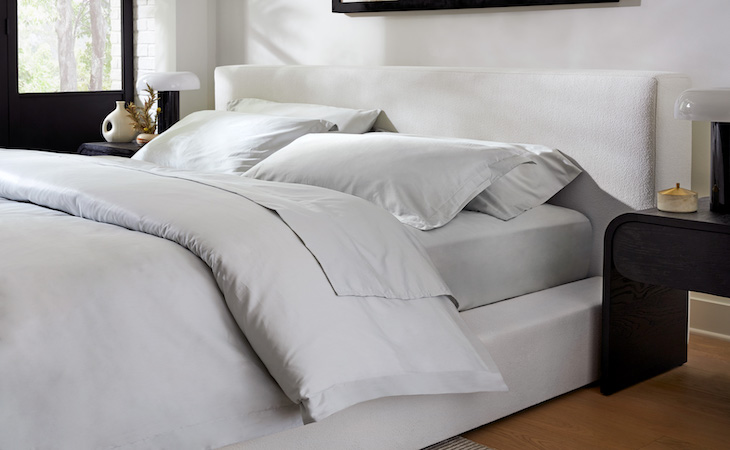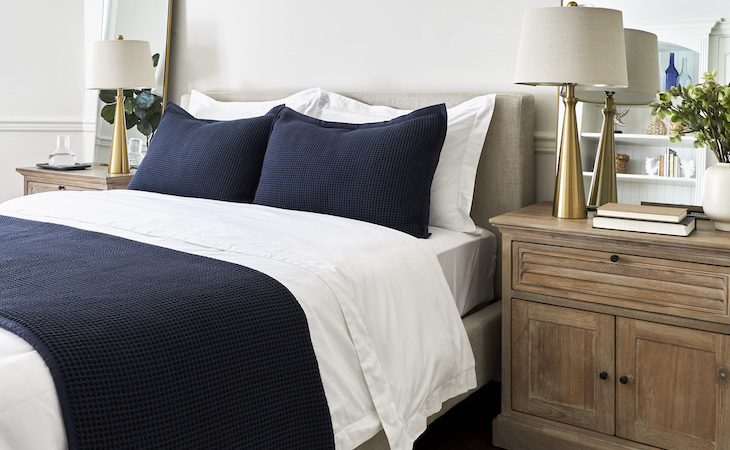
Bedding, Blankets, Comforters & Duvets
May 29, 2025
How to Choose the Best Cooling Blanket
Written by Shelby Deering

Cooling blankets use breathable, moisture-wicking materials or advanced technologies like phase change materials to regulate body temperature and enhance sleep quality. They help reduce night sweats, hot flashes, and overheating. While often more expensive, they offer significant comfort benefits during warm months. Choosing the right material and care is essential.
With the summer months approaching, your mind might be turning toward how to sleep cooler when the temperatures rise. After all, experts say people tend to sleep better when they feel cooler, so you may be looking for ways to cool things down in order to improve your sleep quality.
One popular option right now is a cooling blanket. But what is a cooling blanket for summer? Ahead, we’ll explore everything you need to know about cooling blankets, including how they work and how to choose the best one.
What is a cooling blanket?
What is a cooling blanket—and what, exactly, is it used for?
“A cooling blanket is a type of blanket made with special materials or technologies designed to pull heat away from the body or improve airflow, keeping the sleeper cooler throughout the night, explains Raj Dasgupta, MD, chief medical advisor for Sleepopolis. “They’re often lighter and more breathable than regular blankets.”
Cooling blankets have surged in popularity as more people look for ways to improve their sleep quality, especially during hot weather or due to conditions like night sweats, adds Dasgupta.
“A cooling blanket is a type of blanket made with special materials or technologies designed to pull heat away from the body or improve airflow, keeping the sleeper cooler throughout the night.” – Raj Dasgupta, MD, chief medical advisor for Sleepopolis
How do cooling blankets work?
Cooling blankets work by either wicking moisture away, increasing airflow, or using materials that absorb and dissipate body heat, says Dasgupta.
So, what’s a cooling blanket made of then? In addition to materials like bamboo and cotton, some use advanced fabrics infused with cooling fibers and others incorporate phase change materials (PCMs) that adjust to your body temperature.
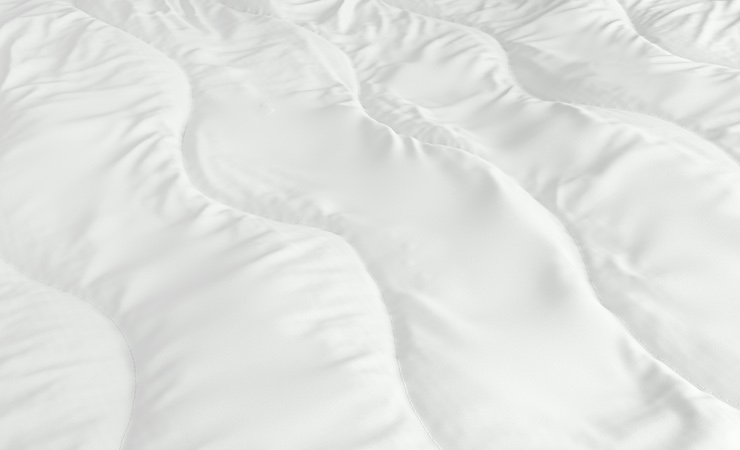
Types of cooling blankets
Dasgupta lists the various types of cooling blankets, which include the following:
- Moisture-wicking blankets
- Breathable cotton or bamboo blankets
- Weighted cooling blankets
- High-tech versions using gel or PCM technology
Some cooling blankets focus on ventilation, while others actively manage heat retention.
Benefits of using a cooling blanket
Do cooling blankets work? According to Dasgupta, they carry a wide array of benefits, including the following:
- Better temperature regulation
- Improved sleep quality
- Reduced night sweats
- Potential relief from hot flashes or overheating
“They can also help lower your core body temperature, which is essential for deep, restful sleep,” he adds.
Drawbacks of using a cooling blanket
Although the benefits sound pretty great, especially on sweltering summer nights, there are some drawbacks to cooling blankets, says Dasgupta. These include:
- Higher price tag compared to regular blankets
- Limited effectiveness for extremely hot sleepers
- Occasional issues with durability or maintenance depending on the materials
- High-tech versions may feel too cold for certain sleepers
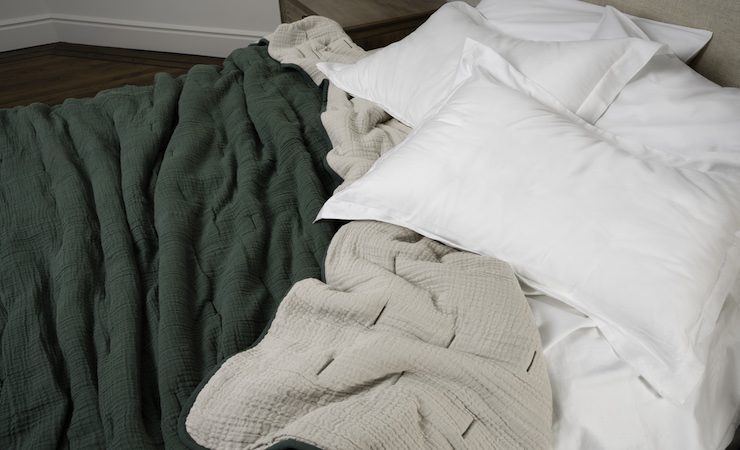
How to choose the best cooling blanket
When choosing a cooling blanket, there are a few factors to consider. According to Dasgupta, these factors include:
- The material (like bamboo, cotton, or PCM fabrics)
- Your personal sleeping temperature
- Weight preference (especially for weighted options)
- Ease of cleaning
- Your budget
He also says reading reviews about real-world cooling performance can help.
How to care for a cooling blanket
Keep in mind that care instructions vary by material. Generally, though, most cooling blankets can be machine-washed on a gentle cycle and air-dried.
“Always check the manufacturer’s label—some high-tech fabrics or weighted designs may require special handling or spot cleaning,” notes Dasgupta.
FAQs
Do you use a sheet with a cooling blanket?
“Yes, you can use a sheet with a cooling blanket,” Dasgupta says. “A breathable, lightweight sheet made from natural fibers like cotton or bamboo can enhance comfort without interfering with the blanket’s cooling effect.”
Can you sleep on a cooling blanket?
While cooling blankets are primarily designed to be used as covers, you technically can sleep on one if it’s thin enough and made of breathable material. “However, sleeping under the blanket generally maximizes its cooling properties,” says Dasgupta.
Which side do you use on a cooling blanket?
“Some cooling blankets are double-sided, with one side specifically designed for cooling (often silkier or smoother) and the other for regular use,” explains Dasgupta. “Always place the cooling side against your body for the best effect—check the label or feel for the cooler surface.”
Sleep cooler with Saatva
Saatva offers a variety of cooling blankets to help you stay comfortable while you snooze. Check out our Lightweight Down Alternative Comforter, Percale Duvet Cover Set, Aero Quilt, and Organic Cotton Channel Quilt and start experiencing cooler sleep.
Shelby Deering
Shelby Deering is a Madison, Wisconsin-based freelance lifestyle writer contributing home design and health articles to national publications. When she’s not writing, you’ll find her hiking, running, or walking with her husband and corgi, Dolly.
